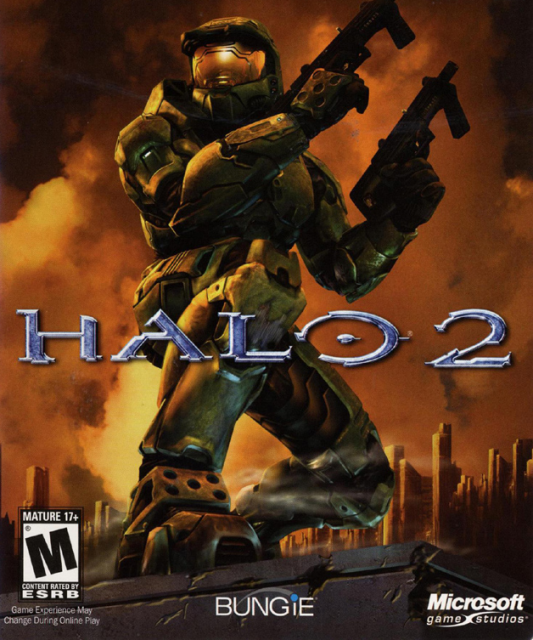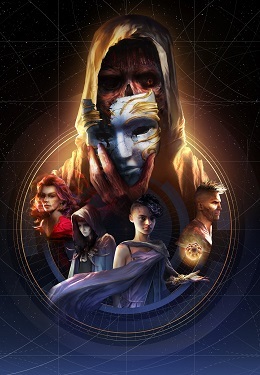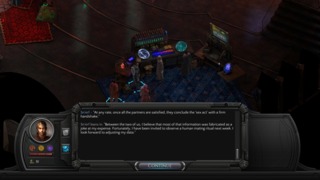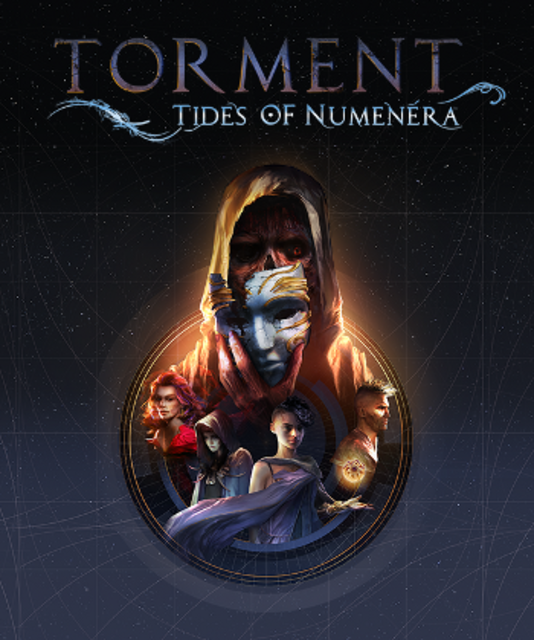I’m currently not playing The Legend of Zelda: Breath of the Wild, for as much as I wish I were. Unfortunately, the Wii U is currently at my parents’ house, where my younger brother regularly uses it to play Smash Bros and there’s no chance in hell of me getting a Switch at launch. I know my tastes well enough to know the dozen or so first party exclusives any given Nintendo platform accrues over its lifetime will be worth my while, but that doesn't mean I can't wait for some of those games to actually come out. I waited a year to get a Wii U, and I'll probably wait that long to get a Switch, just in time for whatever new Fire Emblem game they're making for it to come out. Welp, in any case, I guess I’ll just be over here, playing Nioh and watching weird anime.
Halo 2 and Halo 3

Speaking of first-party exclusives, since my last blog. I’ve managed to get through both Halo 2 and Halo 3 in my quest to play through (almost all) of the Halo with my brother-in-law. While that is honestly a lot of Halo, I find myself still itching to get through the rest of those games, with ODST next on the docket. For as interesting as Halo Combat Evolved is as a piece of history, it was nice to get back to the games in the series I actually have nostalgia for. The anniversary remaster of Halo 2 in particular was a nice surprise, given how long it had been since I played it and how nice the Master Chief Collection version of it looks and sounds. It’s a weird thing to point out, but the new weapon audio, in particular, actually made me go “Holy shit the Magnum sounds so cool” a couple of times. It doesn’t really help Halo 3, by comparison, is mostly untouched from almost a decade ago and looks the part. Wait, did I just say “almost a decade?” Now I feel old.
But, as it turns out, they’re both still plenty fun to play, which I guess is a nice surprise after not seriously playing either in almost a decade. For as much as the campaigns of Halo 2 and 3 have bled together in my mind over the ensuing years, I actually remembered more specifics about both than I thought I would, right down to a couple of the hidden skull locations in Halo 3 and when the shitty flood levels would happen. Between them, the quality of the gunplay and the vaunted “combat sandbox” is more or less equal, though I think Halo 3 is better paced and has the best vehicle sequences in the series, though maybe ODST or Reach will challenge that assertion when I get to them. Either way, it’s actually really hard to talk about Halo when you assume your audience already knows what Halo is. Like, I don’t think getting into small mechanical differences, like how the lunge range on the Halo 2 plasma sword is redonkulous, is really the kind of subject I’d be well-versed in talking about. This Haloventure thus far has been a good reminder that, for better or worse, Bungie got very good at making these games follow a very specific template they only had to tweak slightly over the course of 9 years.
Ultimately, the biggest differentiator for me between Halo 2 and Halo 3 are the Arbiter levels, which are the closest thing Halo as a series has to “good worldbuilding”. It was actually surprising to see the way they managed to explain how The Covenant views things and operates without any sort of ridiculous expository dialogue. Where was that kind of storytelling in Destiny? Of course I can’t really talk about the story for either of these games without mentioning Halo 2’s ending, huh? Even with the caveat that I only superficially care about the story of the Halo series, it’s a textbook example of a bad cliffhanger, a cocktease of a conclusion which would’ve left me a little livid had I actually needed to wait 3 years to see its resolution. Halo 3 does, in fact, finish the fight in a decent enough manner, though it’s hard to talk about the way it ends without thinking of how 343 managed to squander the wide open door left for them. But the Halo 4 talk will have to happen another time. For now,
Torment: Tides of Numenera

Hey guys! This game is finally out only 3 ½ years after I backed it on Kickstarter! Torment: Tides of Numenera is InXile’s attempt to make the spiritual successor to Planescape Torment, one of the greatest walls of text CRPGs ever made. On that front, it mostly succeeds. Going down all the checkboxes, it’s a densely worded RPG with a strong emphasis on talking over fighting, set in an intentionally alienating world, with a smaller-scale personal story surrounding its amnesiac protagonist. Of course, it’s one thing to follow a checklist of features from a beloved classic and another entirely to do it well. In that case, my feelings are a little more complicated, and while I think Tides of Numenera is a fascinating, well-written RPG, I don’t think it quite resonated with me as much as it could have. It’s been a difficult process laying my thoughts out as to why this is the case, but I think I’ve finally managed to get a handle on them.
Like Planescape, the “game” part of Tides of Numenera is easily its least important aspect. While yeah, it’s a RPG based on a pen and paper ruleset, the mechanics mostly exist to facilitate lengthy blocks of well-written text as you wander around the game’s two main hub areas alongside a handful of smaller environments talking to and interacting with every single person and thing with a name or an icon when you press tab. There are combat and skill checks, yeah, but the combat is boring and after a certain point in the game I found the skill checks to be mostly trivial. Said combat is, thankfully pretty uncommon, and can be made rarer still by talking your way out of everything, which is what I did when possible. The encounters themselves are hand-crafted in a way which in theory gives the player a lot of options on how to approach things. In the first fight, for example, you can rewire a piece of old technology to attack your enemies, intimidate them for a debuff, use a Cipher (1-use unique disposable items) or just hit them in the face. It’s a strong proof-of-concept, one betrayed by the reality that the first encounter is going to be the one that gets playtested and tweaked the most. The remainder is left with mechanically shallow turn-based encounters with a handful of interactive objects to make the paltry set of skills and tools at your party’s disposal seem less underwhelming.They’re also balanced around the tacit acknowledgement that you’re probably not going to make your main character a Glaive (the “Fighter” equivalent) in a game where combat is the least important part. The combat itself is based around the exact same mechanics as any given skill check, and the idea behind them (having a limited “pool” of Might, Speed, and Intellect which you can spend to increase your chances of success) seems like it would make perfect sense in the context of the Numenera P&P rules. In the context of a video game, you can reload and you can rest without much consequence. One of the loading screens seemed to suggest some quests might be unresolveable if you rest too much, but I didn’t encounter anything like that. In any case, the only truly irreplaceable skill that you should invest in is Amanesis, which like investing in Wisdom in Planescape, gives you the ability to remember things that might be useful.
With the trifling matter of “gameplay” out of the way, I should probably talk about the story, right? Well, your character, The Last Castoff, is the recently evacuated body of a long-lived, body hopping entity known as The Changing God. With nothing but a vague goal to fix something called “a resonance chamber” and the threat of an ancient destructive force known only as “The Sorrow” on your trail, you find yourself wandering the 9th world of Numenera, a setting where the world is built upon the ruins of ancient, unknowable technology from eras long past (think Clarke’s 3rd law: “Any sufficiently advanced technology is indistinguishable from magic”) and said technology might as well be as common as dirt. If that premise sounds even headier and weirder than the story of an immortal amnesiac on a quest to figure out what his deal is, that’s because it is. “Heady and weird” is indeed the tone of choice for Tides of Numenera, and unlike Planescape it doesn’t have the pre existing tropes and concepts of the D&D cosmology to fall back on. Without fail, every single quest and every single NPC you encounter has some unique quirk, some alien aspect which makes for good speculative sci-fi. To just give a couple examples from the first real area of Sagus Cliffs, there’s a woman who is slowly turning into an insect because of the way her ciphers are interacting with one another, an adoption agency where the kids are actually from the past, and a solitary armored figure who has been forced to recount his failure (at the hands of your sire, no less) for centuries. The endless amount of flexibility that comes from a setting like this allows for a lot of creativity from the writers, and it shows. It’s good enough that I’ll even forgive the “Adahn” callback that was thrown in because reference.

The danger which comes from an intentionally alienating setting is the risk of being unable to ground the reader in any sort of consistent reality. I think Torment has this problem a little bit, where I found myself disconnected from caring about anything happening outside of the more meta goal of getting as much interesting dialogue as possible because everything is always crazy and abstract all the time. There’s a bit of a je ne sais quoi to this whole thing, where I can’t tell you specifically where and why I shifted from feeling like a participant to an observer, or why this game triggered that dissonance but the original Planescape Torment didn’t. I think a strong factor has to do with my utter lack of interest in the supporting NPC companions I dragged along with me. Castellige’s aloof, condescending demeanor grated, I never felt like I got a great handle on Matinka, and while it’s hilarious that Rhin is literally a 10-year-old girl with no special skills (other than the rock in her pocket being “a god”) she’s a little too precocious for my tastes. Maybe if I ran around with Aligern, Tybir, and Erritis I’d think differently, but unless I give this game a replay in a couple of years I won’t know. Another piece of that puzzle is the game’s conclusion, which felt like a bad, rushed cop-out that actually surprised me when it came around the 17 hour mark (keep in mind I’m a very fast reader and YMMV) and ended in a confrontation where I didn’t feel like any of the choices I was given were the right ones. It’s the strongest piece of evidence that Tides of Numenera was going to be a far more ambitious game at one point, but due to the realities of development was eventually pared down to its current state. To be fair, when people talk about how much they love Planescape Torment, they’re usually not referring to its combat-heavy last third, but even that slog didn’t leave me cold at the end.
I can’t help but compare Torment: Tides of Numenera to Tyranny; another flawed RPG, running on the same Pillars of Eternity tech with boring combat, a similar focus on dialogue, a comparatively short running time by the standards of CRPGs, and an underwhelming, seemingly truncated conclusion. It’s ultimately a comparison that leads me to believe I liked Tyranny more, even despite the fact that it took me like a month to finish it compared to the handful of days I spent with Numenera. Neither stands among my favorite CRPGs, but maybe that just means I prefer Tyranny’s ruminations on a particularly grim, mundane brand of evil over Torment’s more high-minded sci-fi and philosophy, or maybe I think Obsidian has better writers than InXile. Regardless, I think I’m done supporting crowdfunded RPGs for a while.
Random Endorsement:
It’s my pleasure to say that the My Brother, My Brother, and Me TV show manages to successfully translate the McElroy brothers’ style of humor into a visual medium without losing anything. This episode is free on Youtube, but if you want to watch the rest you have to sign up for Seeso, a streaming video service that seemed like it didn’t have much else that I wanted to watch. Soo… maybe just do what I did and take advantage of the free trial before unsubscribing.

Log in to comment